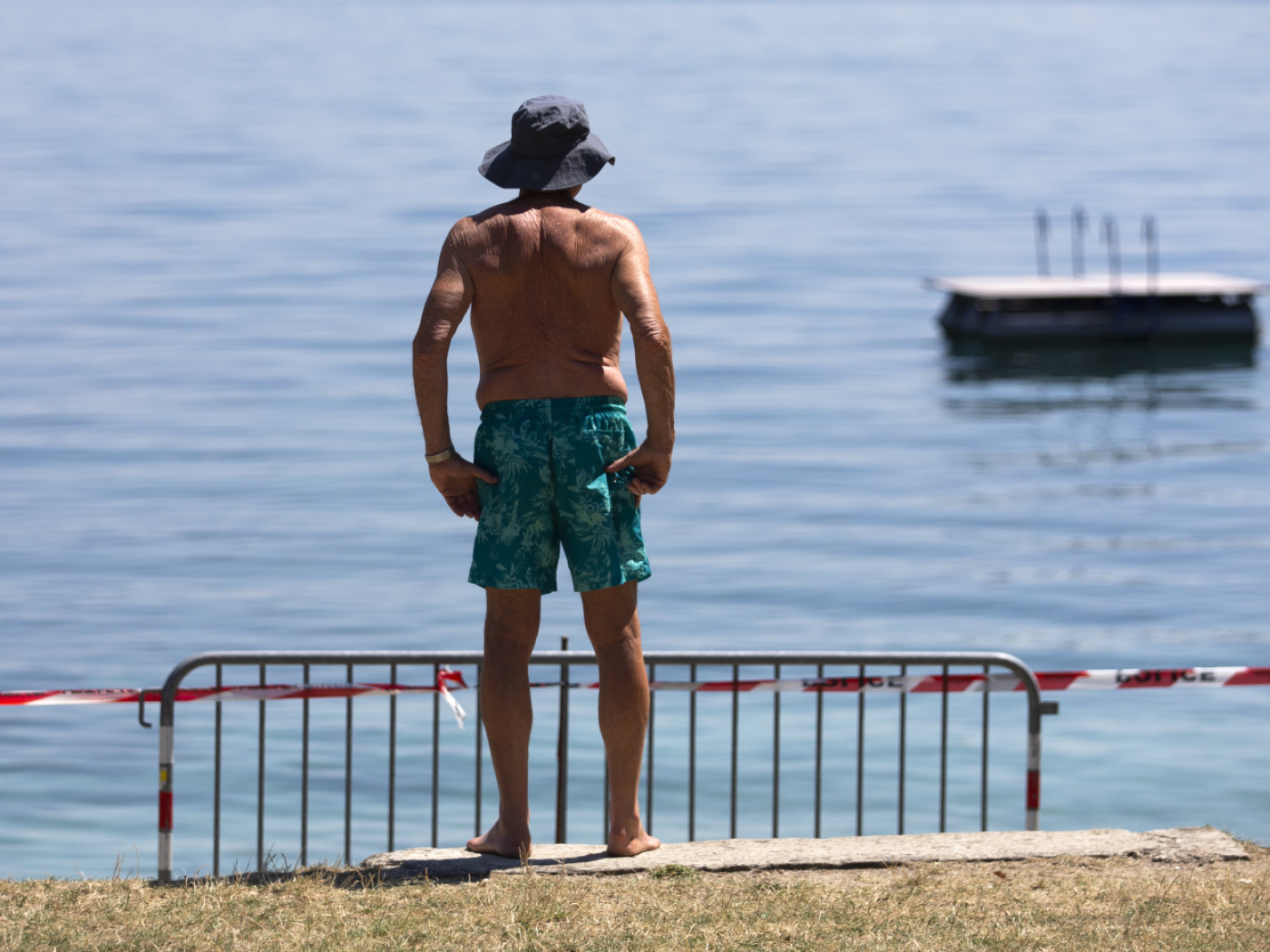
No single cure for toxic blue-green algae: Swiss research

There is no one-size-fits-all remedy for toxic blooms of blue-green algae, according to researchers at the Swiss Federal Institute of Aquatic Science and Technology.
+ Get the most important news from Switzerland in your inbox
Methods for predicting algae blooms that work in one lake can fail completely in another.
Toxic blue-green algae can spread explosively in lakes in summer. In the event of such a toxic algal bloom, the authorities must be able to quickly take protective measures such as a bathing ban, said the aquatic research institute Eawag in a press release on Thursday.
In order to know when such measures need to be taken, certain biomolecules produced by blue-green algae are measured as part of monitoring programmes. Traditionally, pigments such as chlorophyll, which indicate the growth of toxic blue-green algae, have been sought in water.
Unique algae
Eawag scientists have now shown in a study that these pigments have hardly any predictive power in the case of Lake Greifensee – nor do some other indicator molecules proposed by the World Health Organisation (WHO).
The researchers analysed a total of 850 samples from Lake Greifensee. They identified four biomolecules that function in the Greifensee for prediction.
However, this does not mean that they also work in other lakes, according to Eawag. This is because there are major differences between the individual lakes, which are linked to the physical and ecological properties of the lake and therefore also to which blue-green algae predominate in it.
Blue-green algae are not actually algae, but bacteria. Experts therefore refer to them as cyanobacteria. The name blue-green algae is historical, as they used to be mistaken for algae due to their blue-green colour.
Translated from German with DeepL/mga
How we work
We select the most relevant news for an international audience and use automatic translation tools such as DeepL to translate them into English. A journalist then briefly reviews the translation for clarity and accuracy before publication. Providing you with automatically translated news gives us the time to write more in-depth articles. The news stories we select have been written and carefully fact-checked by an external editorial team.
Did you find this explanation helpful? Please fill out the short survey on this page to help us understand your needs.

In compliance with the JTI standards
More: SWI swissinfo.ch certified by the Journalism Trust Initiative




























You can find an overview of ongoing debates with our journalists here . Please join us!
If you want to start a conversation about a topic raised in this article or want to report factual errors, email us at english@swissinfo.ch.